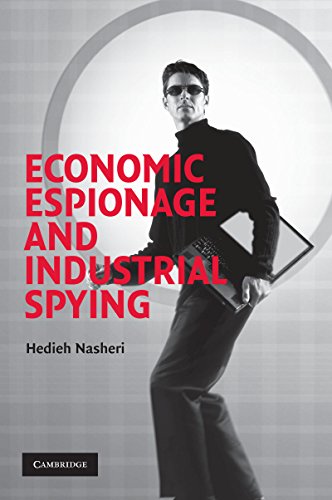
commercial encryption technology and may hinder its development. However, federal policies and actions stemming from national security and law enforcement concerns hinder the use and the export of U.S.
Economic espionage definition software#
In part to reduce the risk, industry is more frequently using hardware and software with encryption capabilities. industry’s risk of losing proprietary information to economic espionage. For the purposes of this report NACIC will heed to the US Attorney Generals. Increased use of computer and communications networks, computer literacy, and dependence on information technology heighten U.S. There are no agreed upon definitions of economic or industrial espionage. Third, foreign intelligence agencies often use sophisticated techniques that may go undetected, making it difficult for companies to prove theft or compromise. Also, once it is determined that a company has been victimized, it is often difficult to place an approximate value on the proprietary data and trade secrets that have been lost. companies are reticent to disclose such information to the public for fear of disclosing information to competitors or of losing their stockholders’ confidence. However, the extent of the problem in the United States cannot be quantified for a number of reasons: First, U.S. With the end of the Cold War and the resulting shift in focus from military to economic power, there is evidence that economic espionage has become a growing problem for U.S. It, however, may help foreign intelligence services identify and fill information gaps that could be a precursor to economic espionage.

Aggressive intelligence collection that is entirely in the public domain and is legal may harm US industry, but it is not espionage. The definition of "economic espionage" excludes the collection of public domain and legally available information that constitutes a significant majority of economic collection.


Occurs when an actor, knowing or intending that his or her actions will benefit any foreign government, instrumentality or agent, knowingly: (1) steals, or without authorization appropriates, carries away, conceals, or obtains by deception or fraud a trade secret (2) copies, duplicates, reproduces, destroys, uploads, downloads, or transmits that trade secret without authorization or (3) receives a trade secret knowing that the trade secret had been stolen, appropriated, obtained or converted without authorization. Congress enacted the Economic Espionage Act in 1996 making it a federal crime to steal trade secrets. proprietary or other information by a foreign government to advance the economic position of that country against U.S.


 0 kommentar(er)
0 kommentar(er)
